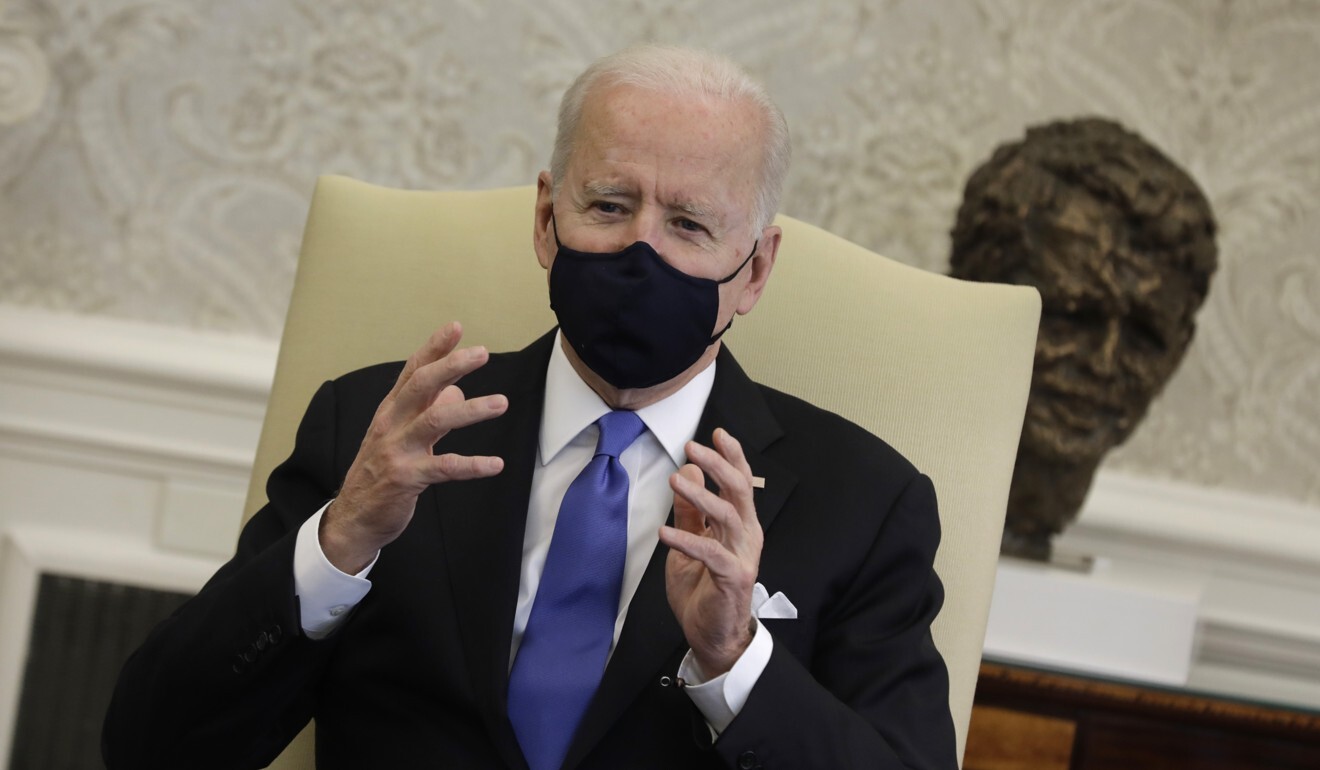
Biden, Suga plan White House meeting as early as April as Quad holds first summit this week
- Japan’s Yoshihide Suga could be the first foreign leader to meet US President Joe Biden in Washington, but the visit depends on the coronavirus pandemic
- This comes as they are set to take part in a Quad meeting this week, and US Secretary of State Antony Blinken visits Japan and South Korea next week
US media outlet Axios reported on Sunday that Biden will host the Japanese leader next month, although the exact schedule will depend on the coronavirus pandemic, which means the visit could be delayed until later in the spring.
From the US perspective, the invite “would signal a partial return to normalcy as to how the Biden administration conducts foreign policy during the pandemic, with the new president beginning face-to-face meetings with foreign leaders in the Oval Office”, Axios reported.
For Japan, images of Biden welcoming Suga into the White House as his first foreign guest would be a significant diplomatic coup.
“Tokyo will be absolutely delighted if Suga is the first foreign visitor because it gives both him and Japan a lot of face,” said Jeff Kingston, director of Asian studies at the Tokyo campus of Temple University.
“It’s hard to overstate just how important this is to Japan in terms of the diplomatic challenges that Tokyo faces from China, North Korea, Russia and Myanmar, so for Suga to be the first invited to Washington means a lot,” he said.
“But it also signals that the Biden administration, in contrast to his immediate predecessor, wants to rebuild America’s alliances, to show that the US is back on the international stage, that it cares about its allies rather than trying to kick them and embrace its traditional enemies,” he added.
The Quad is considering holding its first summit in a virtual format on Friday or during the upcoming weekend, Japanese government sources said on Monday.
The meeting would take place days before US Secretary of State Antony Blinken and Defence Secretary Lloyd Austin’s planned visit to Japan and South Korea. The trip will be the first to the Asian allies by the top US foreign policy and defence officials since the Biden administration took office in January.
“I expect Suga will ask for another public declaration of Washington’s position on the Senkakus, but I also expect the two leaders to repeat their concerns about the growing power and reach of China and the importance of a free and open Indo-Pacific,” said Yuko Ito, a professor of international relations at Asia University.

While the US has already imposed sanctions on the military junta and is considering further measures, Japan has taken a far softer line. Ito said Tokyo appears to be concerned that exerting too much pressure on Myanmar’s generals may result in the leadership drawing closer to Beijing.
Kingston, however, pointed out that the generals expressed concern well before the coup that the democratic government was becoming too closely aligned with China. He suggested the junta’s recent hints that sanctions might drive them into a closer relationship with Beijing may be little more than a threat designed to ease foreign pressure on their government.
“The US wants Tokyo and Seoul to get over their shared past and to work more collaboratively as allies on the pressing issue of North Korea as opposed to continuing to fight over the past,” Kingston said.
“Japan feels that the ball is in Korea’s court on the ‘comfort women’ and the forced labourers, while [South Korean] President Moon Jae-in does appear to want to leave a legacy of improved ties as he nears the end of his time in power,” Kingston said, suggesting that Biden might see an opportunity to rebuild the frayed relationship.
“Broadly, Biden wants to put the stamp on the US being back in Asia and he is clearly in tune with Washington’s consensus on the need to contain China, all of which will be music to the ears of Tokyo,” he added.
Additional reporting by Kyodo, Reuters

